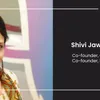Why this self-taught jewellery designer started a retail jewellery collective and experience store
Varuna D Jani is dazzling both designers and consumers by starting Ruani, a jewellery collective and experience centre in Mumbai.
Varuna D Jani found her passion for jewellery early in her life. When most children her age would be entertained by drawing cartoons, Varuna admittedly found joy in sketching designs.
She grew up in a household that runs heritage jewellery brand Popley – where jewellery was part of everyday discussion and not just restricted to occasions and festivals. She also recalls accompanying her father on many trips to spend more time with him only to find herself more immersed in the world of jewellery. Even then, becoming a professional jewellery designer was not on the cards for young Varuna, who married and moved to Dubai at 18.
However, when her father was going through some health complications and was considering shutting shop in 2006, Varuna stepped in to help him at Popley.
"I used to assist designers and customers noticed the difference in jewellery and its aesthetics. I learnt everything about jewellery in the international market and realised that I wanted to be a designer," she says, recalling the beginning of her 12-year-long journey as a designer.
In 2008, she parted ways with Popley and started her eponymous jewellery brand, Varuna D Jani, with the initial capital she got from selling her apartment.

The journey
The last one-and-half year was a difficult time for Varuna who lost both her sister and her mother. The experience set her up to live a more ‘meaningful life.’
All too familiar with challenges that designers face, Varuna says that most designers and jewellery businesses have little turnover.
"It is always about making ends meet because the overheads to run are very high. The gross profit may be high but the net profit shows you are just able to sustain,” she explains.
While Varuna came from a well-to-do family and could afford to hold on to her dreams as a self-taught designer, she says many creative and passionate professionals have it more difficult, especially during the pandemic. This became the idea behind Ruani, her latest venture which is a multi-brand luxury and bespoke jewellery house in Mumbai, co-founded with Divyesh Shah. The entrepreneur claims this to be a first of its kind jewellery collective in India.
It showcases the works of designers such as Suhani Pittie, Shachee Shah, Aditi Amin, Sonal Sawansukha, Sankesh Surana, Latika Khanna, Chayya Jain, Akshat Ghiya, Marie Cabirou, Mike Saatji, and Anabela Chan, among others – with more than 80 percent of the jewellery priced below Rs 7 lakh.
“Most designers don’t have distribution and as I am a designer myself, I can understand the plight of other designers to work on it,” Varuna says, adding that operating in a “99 percent male-dominated industry” was a challenge.
Navigating the market
now takes care of all the marketing and advertising for designers and earns a fixed nominal amount as the fee. The designers also gain access to Varuna’s customer base built over the last decade. The business also operates on a revenue-sharing model where Ruani keeps a commission from every sale made.
Having started with an investment of more than Rs 3 crore, Varuna's vision is to turn the business from just a jewellery store to an experience centre and invest in display and decor. Just a couple of months into the business, Varuna said the business is doing good and did not divulge revenue and finances.
The gems and jewellery market in India is one of the largest in the world, accounting for 29 percent of the global jewellery market and is expected to reach $103.06 billion by 2023, according to IBEF. Each designer at Ruani is part of a competitive market with more than 300,000 players. However, the business as a jewellery collective has little competition.
Varuna says anybody with a taste for jewellery with a family income of Rs 10 lakh monthly would be the company’s ideal target audience. Although it has avoided online presence for the fear of having the designs copied, it hopes to venture online after a year. At this stage, the collective is focused on building trust with the audience.
Edited by Kanishk Singh




![[Women Entrepreneurship Day] Mobikwik’s Upasana Taku on why we need to celebrate women entrepreneurs](https://images.yourstory.com/cs/4/211ccaf00e6d11e997fe8f165dce9bb1/Imagedesign14-1637157613360.png?fm=png&auto=format&h=100&w=100&crop=entropy&fit=crop)




